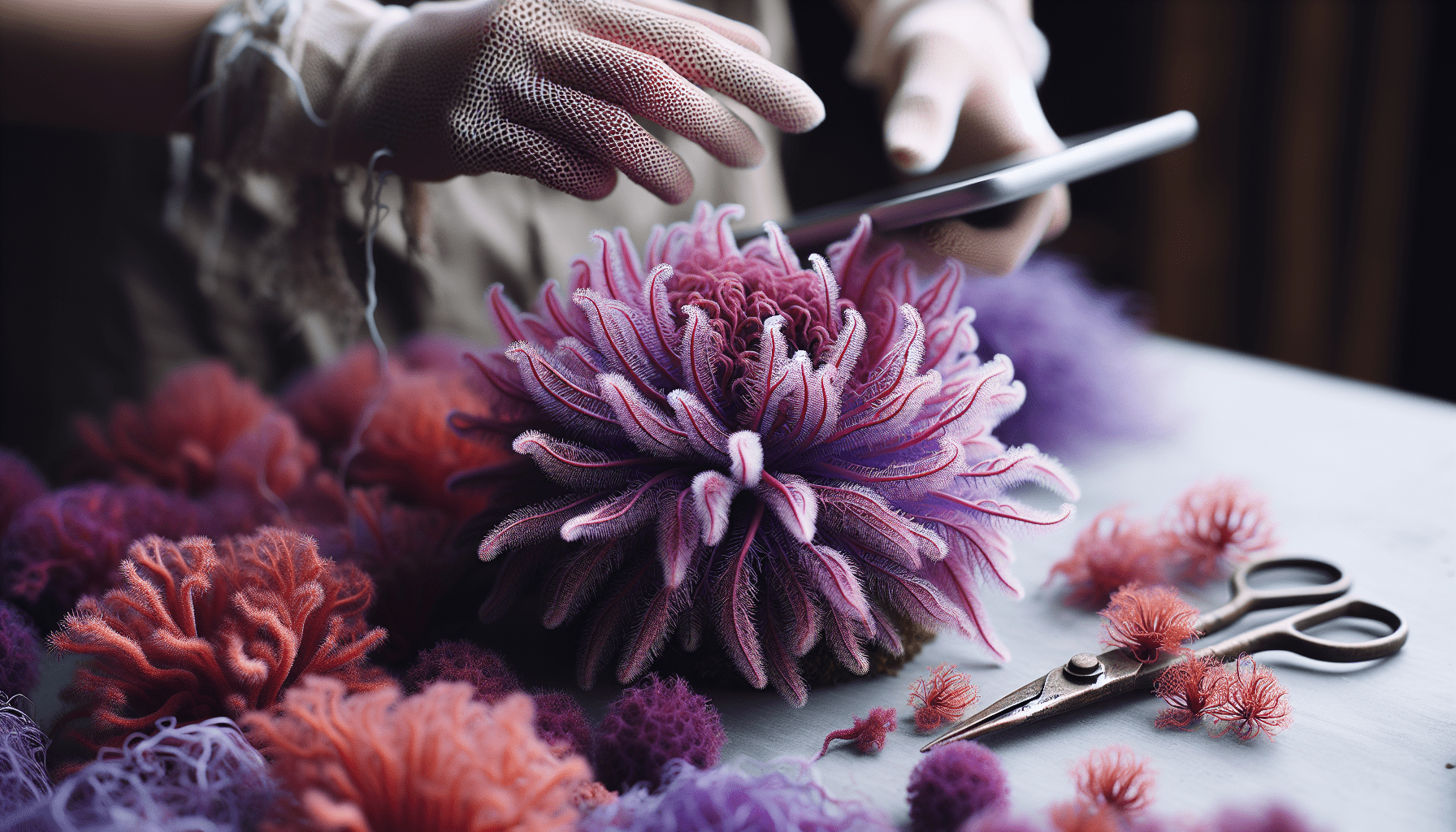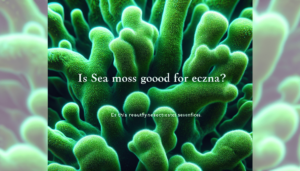The Best Fluffy Pancakes recipe you will fall in love with. Full of tips and tricks to help you make the best pancakes.

Are you curious about the potential benefits of sea moss for fibroids? Sea moss, also known as Irish moss, is a type of seaweed that has gained popularity for its numerous health benefits. Fibroids, on the other hand, are non-cancerous growths that can form in the uterus, causing various symptoms. In this article, we will explore the question of whether sea moss can be beneficial in managing fibroids and delve into the potential mechanisms behind its claimed effects. So, if you’re looking for natural remedies and interested in learning more about sea moss and its potential impact on fibroids, keep reading!
What are fibroids?
Fibroids, also known as uterine leiomyomas, are non-cancerous growths that develop in the uterus. They are made up of muscle cells and fibrous connective tissue. Fibroids can vary in size, ranging from small, pea-sized growths to large tumors that can distort the shape and size of the uterus. While the exact cause of fibroids is unknown, hormonal factors, genetics, and certain lifestyle factors may contribute to their development.
Symptoms
The symptoms of fibroids can vary greatly depending on their size, number, and location within the uterus. Some women with fibroids may not experience any symptoms at all, while others may have:
- Heavy or prolonged menstrual periods
- Pelvic pain or pressure
- Frequent urination
- Difficulty emptying the bladder completely
- Pain during sexual intercourse
- Back pain
- Constipation or bloating
It is important to note that these symptoms can also be caused by other conditions, so it is necessary to consult a healthcare professional for an accurate diagnosis.
Causes
The exact cause of fibroids is still not fully understood. However, there are several factors that may contribute to their development. Hormonal imbalances, specifically an excess of estrogen and progesterone, have been linked to the growth of fibroids. Genetic factors may also play a role, with women who have a family history of fibroids being at a higher risk. Other potential risk factors include obesity, certain dietary factors, and early onset of menstruation.
What is sea moss?
Introduction
Sea moss, scientifically known as Chondrus crispus, is a type of algae that grows abundantly in coastal regions. It has been used for centuries in traditional medicine for its potential health benefits. Sea moss is rich in nutrients and minerals, which makes it a popular addition to foods and supplements.
Nutritional value
Sea moss is packed with essential nutrients that are beneficial for overall health. It is a rich source of vitamins, including vitamin A, vitamin E, and vitamin K. It also contains a variety of minerals such as iodine, iron, zinc, and magnesium. Additionally, sea moss is high in fiber and contains antioxidants, which help protect the body against cellular damage.
Benefits
Sea moss is believed to have numerous health benefits. Some potential benefits of consuming sea moss include:
- Improved digestion: The high fiber content of sea moss can promote healthy digestion and prevent constipation.
- Boosted immune system: Sea moss is rich in antioxidants and vitamins that support immune function and help the body fight off illnesses.
- Healthy skin: The vitamins and minerals in sea moss can nourish the skin, promote a youthful appearance, and may help with conditions like acne and eczema.
- Increased energy levels: Sea moss is a good source of iron, which is essential for energy production and preventing fatigue.
Link between sea moss and fibroids
Claims and beliefs
There is a growing belief among some individuals that sea moss may have potential benefits for managing fibroids. Some people claim that the iodine content in sea moss can help regulate hormone levels, which may impact the growth of fibroids. Others believe that the iron and other minerals in sea moss can support overall reproductive health and potentially shrink fibroids.
Research findings
While anecdotal evidence and personal experiences are often shared regarding the use of sea moss for fibroids, it is important to note that there is limited scientific research available to support these claims. Further studies are needed to fully understand the potential effects of sea moss on fibroids. Consulting with a healthcare professional is advised before incorporating sea moss or any other natural remedy into a treatment plan.
Nutrients in sea moss that may aid with fibroids
Iodine
Sea moss is a rich source of iodine, an essential mineral that plays a crucial role in the production of thyroid hormones. These hormones are involved in regulating the menstrual cycle and can impact the growth of fibroids. However, it is important to note that excessive iodine intake may have adverse effects on thyroid function, so moderation is key.
Iron
Iron is an important mineral that supports the production of red blood cells and helps transport oxygen throughout the body. Adequate iron levels are essential for overall reproductive health and may play a role in managing fibroids.
Zinc
Zinc is involved in various processes within the body, including immune function, cell growth, and hormone regulation. Some research suggests that zinc deficiencies may be linked to the development and growth of fibroids.
Magnesium
Magnesium is a mineral that is involved in over 300 enzymatic reactions in the body. It plays a role in muscle contraction and relaxation, which can help reduce the severity of menstrual cramps associated with fibroids.
Vitamin C
Vitamin C is an antioxidant that helps protect the body against cellular damage. It also plays a role in collagen synthesis, which is important for maintaining the health of the uterus and other reproductive organs.
How sea moss is consumed
Raw sea moss
Raw sea moss can be soaked and then added to various dishes, such as soups, smoothies, or salads. It has a slightly salty taste and a gelatinous texture.
Sea moss gel
Sea moss gel is made by blending soaked and rinsed sea moss with water until it becomes smooth and gel-like in consistency. It can be used as a thickening agent in recipes or consumed directly.
Sea moss capsules
For those who prefer a more convenient option, sea moss is also available in capsule form. These capsules contain powdered sea moss and can be taken orally with water.
Precautions and potential risks
Allergic reactions
Some individuals may be allergic to sea moss or other forms of algae. Allergic reactions can range from mild symptoms like itching and hives to more severe reactions such as difficulty breathing. If you have a known allergy to seafood or iodine, it is advisable to avoid sea moss or consult with an allergist before consuming it.
Interactions with medication
Sea moss may interact with certain medications, such as blood thinners or anticoagulants. It is important to discuss the use of sea moss with a healthcare professional if you are taking any medications to avoid potential interactions.
Contamination risks
Sea moss harvested from polluted waters can contain contaminants, including heavy metals and bacteria. It is crucial to source sea moss from reputable suppliers to minimize the risk of contamination.
Recommended dosage
Consultation with healthcare provider
Before incorporating sea moss into your routine, it is important to consult a healthcare professional, especially if you have any pre-existing medical conditions or are taking medications. They can provide personalized advice on the appropriate dosage and usage of sea moss.
General guidelines
In general, a moderate intake of sea moss is recommended. Starting with smaller amounts and gradually increasing the dosage can help gauge its effects on the body. It is advisable to follow the recommended dosage instructions provided by the manufacturer or healthcare professional.
Other natural remedies for fibroids
Herbal supplements
Certain herbal supplements, such as chasteberry, ginger, and turmeric, have been traditionally used to manage fibroid symptoms. However, scientific evidence supporting their efficacy is limited, and it is important to consult with a healthcare professional before using herbal remedies.
Dietary changes
Maintaining a healthy diet can positively impact reproductive health. Consuming a diet rich in fruits, vegetables, whole grains, and lean proteins, while reducing the intake of processed foods and sugary beverages, may help manage fibroid symptoms.
Stress management
Chronic stress can worsen fibroid symptoms. Incorporating stress reduction techniques like meditation, yoga, and regular exercise into your routine can be beneficial for overall well-being and potentially help manage the impact of fibroids.
Importance of medical advice
Consulting a healthcare professional
While natural remedies like sea moss and other alternatives can provide potential benefits, it is essential to consult with a healthcare professional for an accurate diagnosis and appropriate management of fibroids. They can provide personalized advice based on your specific condition and overall health.
Combining natural remedies with medical treatments
Natural remedies should not replace medical treatments for fibroids. It is important to discuss the use of any natural remedies with your healthcare provider to ensure that they are compatible with your current treatment plan. Combining medical treatments with natural remedies under the guidance of a healthcare professional can provide a comprehensive approach to managing fibroids.
Conclusion
While sea moss has gained popularity for its potential health benefits, including the management of fibroids, it is important to approach such claims with caution. While some anecdotal evidence suggests a link between sea moss consumption and fibroid management, scientific research is still limited. Consulting with a healthcare professional is crucial to receive personalized advice and to ensure that sea moss or any other natural remedy is used safely and effectively. Fibroids are a complex condition, and a multidisciplinary approach that combines medical treatments with lifestyle modifications may be necessary for optimal management.




